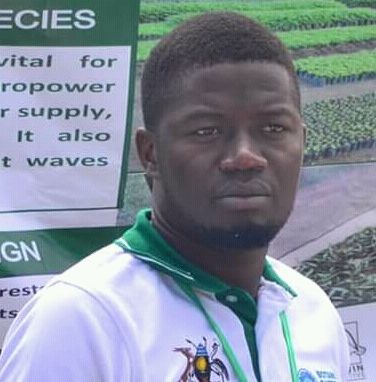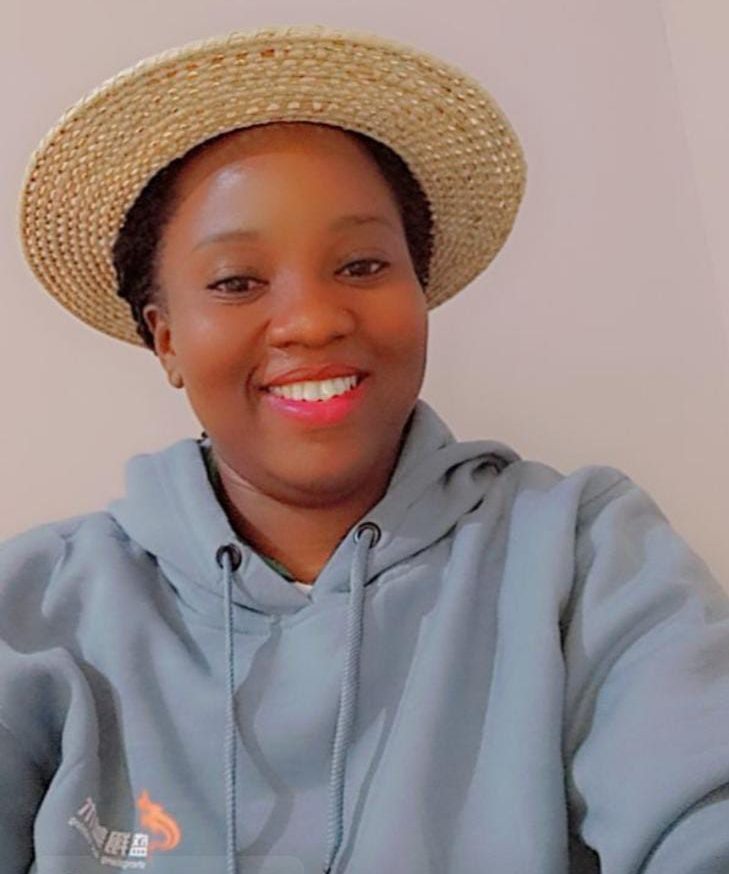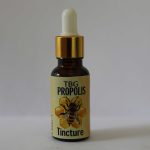Tooro Botanical Gardens Background
Tooro Botanical Gardens (TBG) is an indigenous non-profit making organization founded in 2001 as a Centre of excellence in growing and maintaining living plant collections from the Albertine region for conservation, scientific research, education, horticultural and aesthetic purposes. It is based in Fort Portal tourism city in western Uganda. The garden VISION is “A natural green environment for conservation, education, scientific research and recreation” and its MISSION STATEMENT is “To promote community-centered Biodiversity Conservation and advance a sustainable relationship between people and nature.”
Since 2001, TBG has made good strides in the above fields. In this period TBG established her own 40 hectares of Botanical Gardens in the center of Fort Portal city which is used as a practical demonstration and training canter for its main areas of focus listed below.
TBG-Main areas of Focus.
1. Sustainable Biodiversity Conservation, Education and Research.
2. Green Skilling hub for climate smart Jobs such as Ecotourism, Agro tourism, Landscaping, Apiculture and Horticulture.
3. Promotion of Nature Based Solutions for sustainable development
4. Ecological restoration
5. Tree planting and promotion of urban forestry.
6. Integrated water Resources Management.
7. Tree nurseries’ establishment and Management.8. Climate change mitigation and Adaptation such as Promotion of Clean energy and linking climate smart enterprises.
Some specific achievements are highlighted below:
Sustainable Biodiversity conservation
TBG conserves the highest species diversity per unit areas outside the national parks in the urban setting of Fort portal city. Since 2004 TBG has been restoring and conserving a number of ecosystems notably; a 40-hectare former communal graze land in the heart of Fort portal city which has been turned into a promising primary forest between 2004 to date, with over; 208 tree species up from 12 species, 175 bird species up from 23 species, 780 non-woody plants, insects, reptiles and few wild animals all playing a range of ecological functions. Additionally, TBG restored; 16 hectares part of degraded Kagombe central forest reserve in Kagadi, 5 hectares of Namatale central forest reserve in Mbale, 3.5 hectares of Kirimirire local forest reserve in Ibanda, 7 hectares of Lwamunda central forest reserve, 4.08 hectares Nyakigumba and 11.8 hectares Nyakinoni local forest reserves in Bunyangabu, The banks of river Mpanga in Kabarole, Fort portal city and Kyenjojo district and Mpanga Gorge in Kamwenge District.
Supply and demand restoration in Uganda for people and biodiversity.
In partnership with BGCI, IUCN and financial support from the Darwin Initiative, TBG implemented a 3-year project Supply and Demand: Restoration in Uganda for People and Biodiversity that set up four nurseries and restoration demonstration plots next to areas identified as priorities for forest restoration in the FLR Opportunity Assessment (ROAM 2016). Locations of the nurseries are Mbale native tree nursery in the Afromontane landscapes, Lwamunda native tree nursery in the Lake Victoria crescent, Kagadi native tree nursery in the Midwestern altitude landscapes and Ibanda native tree nursery in the southwestern rangelands.
This project supported the delivery of biodiversity conservation and created opportunities for livelihood improvement by employing people from rural areas to collect seed and cultivate native seedlings in the four nurseries, establish and manage 4 restoration demonstration plots. Over the timeframe of the project, the nurseries produced genetically diverse seedlings of over 320,000 of 103 native tree species including 8 that are globally threatened and 12 that are threatened in Uganda from the four nurseries established in high priority restoration areas. The project contributed to the publication of ten golden rules for reforestation to optimize carbon sequestration, biodiversity recovery and livelihood benefits
Indigenous plant nurseries
TBG operates the largest and most species diverse non-government indigenous plant nurseries in Uganda which has raised over 20 million seedlings of over 208 tree species and over 8 million other indigenous plant seedlings since 2001. Currently TBG main nursery has 335,210 seedlings of 147 species ready for planting. This nursery has supplied over 19,876,200 tree seedlings to communities and organizations such as; Ministry of water and Environment, Government of Uganda, Wildlife conservation society (WCS), Protos, Kabarole Research and Resource Centre (KRC), Joint Effort To Save The Environment (JESE), Agrievolve-Uganda, Uganda Wildlife Authority (UWA), National Forestry Authority (NFA), National Water and Sewerage Cooperation (NWSC), Fort Portal city, Tororo District Local Government, Katakwi District Local Government, Kabarole District local Government among others.
Additionally, the garden established 4 specialised nurseries which since inception in 2018 have raised over 320,000 seedlings of 103 tree species with 272 successful propagation techniques, Seed surveys were carried out in the following forest areas; Lwamunda Forest Reserve (FR), Busanyi Community FR, West Bugwe-Busitema FR, Mabira FR, Mount Elgon National Park, Kibale National Park, Itwara FR, Ibanda Hill FR, Kashyooha-kitoomi FR, Kagombe FR, and Budongo FR and Buhoiga Central Forest Reserve, and additional community forests. Of the 182 targeted species, 142 species were located and monitored for seed set, with seed collecting calendars produced for 101 species collated for species in each project area that take care of different agro ecological zones of Uganda namely:
- Western mid-altitude, located in Kagadi, Kagombe central forest reserve
- Lake Victoria Crescent, located in Lwamunda central forest reserve
- Western rangeland, Ibanda local forest reserve
- Afromontane landscape Mbale central forest reserve
Ecological restoration
Since (2004) TBG has restored over 126 hectares of degraded ecosystems including the 40 hectares Fort portal central forest reserve, Kagombe central forest reserve in Kagadi, Namatale central forest reserve in Mbale, Kirimirire local forest reserve in Ibanda, Nyakigumba and Nyakinoni local forest reserves in Bunyangabu district, The banks of river Mpanga in Kabarole, Fort portal city and Kyenjojo district and Mpanga Gorge in Kamwenge District. Four slopes of Mountain Rwenzori plus four wetlands in Kabarole District.
Biodiversity Education and Research
In 2012 TBG established a green jobs skilling hub and biodiversity research/training center in Fort portal city which host a number of biodiversity trainings. It provides training, technical support and information, to ensure that TBG partners and communities have the skills, facilities and knowledge needed to successfully meet critical global conservation targets.
TBG skilling hub was established to address the skills and knowledge gaps among Ugandans through imparting intensive practical green skills aimed at producing a human resource pool with the ability to create jobs for themselves and employ others.
The hub provides specialized green skills that allow individuals to be successful and realize their full potential that may not be provided by mainstream education institutions.
Additionally, TBG devotes its resources to the study and conservation of plants, as well as making Uganda’s plant species diversity known to the public. The Garden implements research programs such as seed monitoring and sourcing, successful plant propagation, conservation and restoration programs, plant animal ecology among many others.
Our Values
TBG upholds the following values as a guideline to its operation and conservation obligations.
- Professionalism
- Stewardship
- Compassion
- Transparency and accountability
- Trustworthiness and integrity
- Teamwork and partnership
- Social responsibility
Objectives
- To increase the adoption of enhanced Biodiversity conservation practices by communities and local authorities.
- To Collect, document and maintain Albertine rift flora
- To Provide recreation facilities to the public and expose them to different hands-on biodiversity conservation aspects.
- To enhance the effectiveness and efficiency of TBG to deliver on her mandate
Our Vision
A natural green environment for conservation, education, scientific research and recreation.
Our Mission
To promote community-centred Biodiversity Conservation and advance a sustainable relationship between people and nature.
Meet Our Team
Godfrey Ruyonga
Director

Alislam Said
Conservation & Research Manager

Harriet Kokugonza
Education & Skilling Manager

